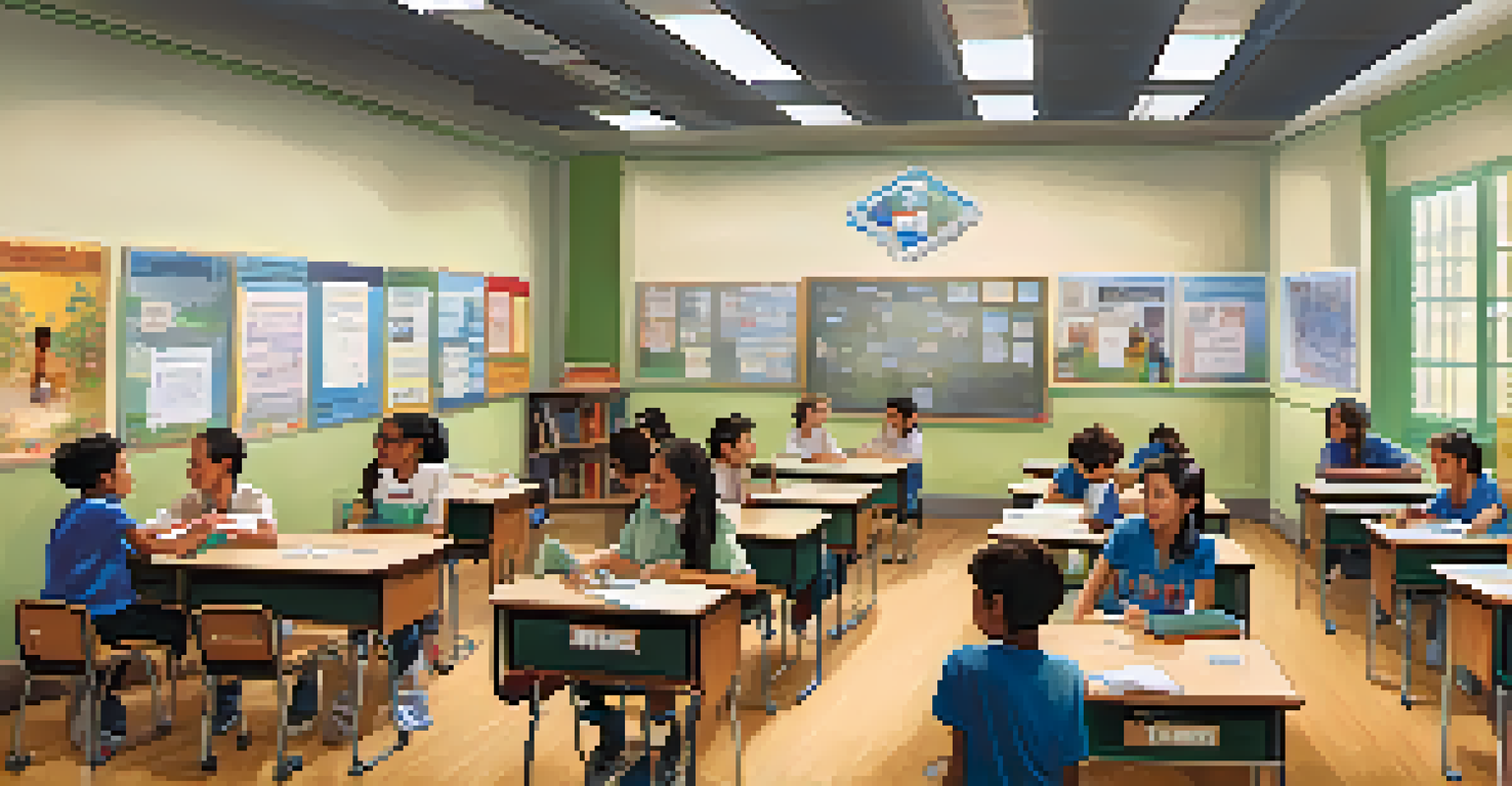Empathy and Its Role in Personal Safety Awareness

What is Empathy and Why It Matters
Empathy is the ability to understand and share the feelings of others. It’s not just about feeling sorry for someone; it's about truly connecting with their emotional experience. This connection fosters compassion and can influence our actions, especially regarding safety.
Empathy is about finding echoes of another person in yourself.
When we empathize with others, we begin to recognize their vulnerabilities and challenges. This heightened awareness can lead us to take proactive steps to ensure not only our safety but also the safety of those around us. It creates a ripple effect, encouraging a community-oriented mindset.
For instance, by putting ourselves in someone else's shoes, we might notice signs of distress that we would otherwise overlook. This awareness can be crucial in situations where personal safety is compromised, as it prompts us to act thoughtfully and responsibly.
Empathy in Everyday Situations: A Safety Lens
Consider a busy street where pedestrians are often lost in their own worlds. Empathy encourages us to be more observant of our surroundings, allowing us to spot a person who might be in trouble. This simple act of awareness can be the difference between a minor incident and a major safety issue.

By engaging empathetically with our environment, we can identify potential risks not just for ourselves but for others as well. For example, if we see someone struggling with heavy bags, our instinct to help could prevent them from being distracted and vulnerable in a public space.
Empathy Enhances Community Safety
By fostering connections and understanding among individuals, empathy encourages proactive actions that enhance the safety of our communities.
Additionally, empathy can help us read social cues better. When we understand that someone is feeling uncomfortable or threatened, we’re more likely to intervene or provide support, enhancing the overall safety of our community.
Building Communities through Empathy
Empathy serves as a foundational element for building safer communities. When people feel connected and understood, they are more likely to look out for one another. This collective care creates an environment where personal safety is prioritized.
The greatest gift of human beings is that we have the power of empathy.
For instance, neighborhood watch programs often thrive on the principle of empathy. Residents who know each other can better identify when something seems amiss, leading to quicker responses to potential threats.
Moreover, fostering empathy in schools or workplaces can create a culture of safety. When individuals feel valued and heard, they are more likely to report issues and support one another, enhancing overall safety awareness.
Empathy’s Role in Conflict Resolution
In situations of conflict, empathy plays a crucial role in de-escalation. Understanding the emotions and perspectives of others can help diffuse tension and prevent potential violence. A calm and empathetic approach can transform confrontations into constructive conversations.
For example, imagine a disagreement escalating into a heated argument. If one party takes a moment to empathize with the other's feelings, they might find common ground and work towards a peaceful resolution. This not only addresses the immediate concern but also fosters a respectful dialogue.
Empathy Aids Conflict Resolution
Understanding others' perspectives through empathy can defuse tensions and lead to peaceful resolutions in conflict situations.
Ultimately, employing empathy in conflict situations enhances personal safety by creating a culture of understanding. When people feel heard, they are less likely to resort to aggressive behaviors, ensuring a safer environment for everyone.
Empathy as a Tool for Self-Protection
Empathy isn’t just about understanding others; it also plays a significant role in self-awareness. By recognizing our own emotions and vulnerabilities, we can better protect ourselves in risky situations. This self-awareness is a critical component of personal safety.
For instance, if we’re feeling anxious or uneasy in a particular environment, empathy towards our own feelings can prompt us to take precautionary steps. This might mean leaving the area or seeking help from a trusted friend or authority figure.
Understanding our emotional triggers allows us to respond effectively to danger. By staying in tune with our feelings, we can make smarter choices that enhance our personal safety.
Empathy and Digital Safety Awareness
In today’s digital age, empathy extends to our online interactions as well. Understanding the impact of our words and actions on others can lead to safer online communities. This is especially important in preventing cyberbullying and harassment.
When we approach online communication with empathy, we’re more likely to think before we post or comment. This mindfulness can help create a supportive environment where individuals feel safe to express themselves without fear of backlash.
Cultivating Lifelong Empathy
Engaging in empathy-building activities and active listening develops a deeper awareness of safety concerns in our lives and communities.
Moreover, teaching digital empathy can empower individuals to report abusive behavior and support those who are targeted. By building an empathetic online culture, we can enhance safety for everyone in the digital space.
Cultivating Empathy for Lifelong Safety Awareness
Cultivating empathy is not a one-time event; it’s a lifelong journey that can significantly enhance our personal safety awareness. Engaging in activities like volunteering or community service can foster a deeper understanding of others' experiences and challenges.
Moreover, practicing active listening in our day-to-day interactions can sharpen our empathetic skills. When we truly listen, we not only understand others better but also become more attuned to potential safety concerns around us.

In essence, making empathy a priority in our lives equips us with the tools to navigate the complexities of safety, both personally and within our communities.